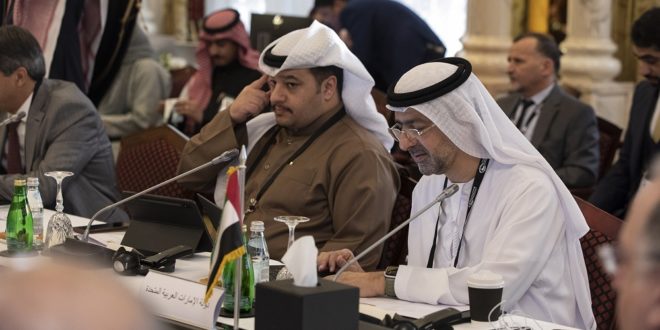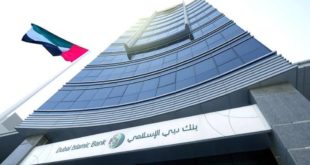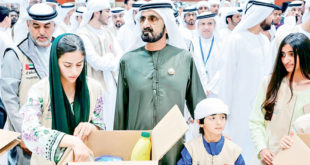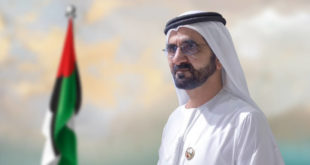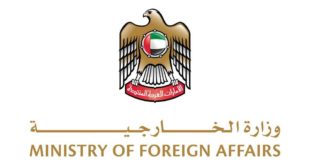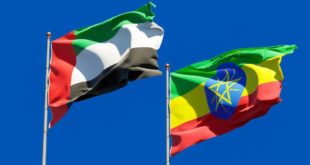Abu Dhabi, January 20: The United Arab Emirates participated in the eighth meeting of the Undersecretaries of the Ministries of Finance in the Arab countries, which was organized by the Arab Monetary Fund on January 18 and 19 in Abu Dhabi.
The meeting, which was held with the participation and attendance of undersecretaries of ministries of finance, and a number of experts from the International Monetary Fund, the World Bank and the Organization for Economic Cooperation and Development (OCED), discussed the latest developments related to economic diversification policies and the reality of investment and growth in the Arab countries.
On the part of the Ministry of Finance, His Excellency Younis Haji Al-Khoury, Undersecretary of the Ministry of Finance, Ahmed bin Suleiman, Director of the Public Debt Management Office, Thuraya Al-Hashemi, Director of the International Tax Department, Fatima Al-Sheikh, Director of the Tax Policies and Legislation Department, Abdullah Ahmed Al-Obaidly, Director of the International Financial Relations Department, and Moza Al-Matroushi participated in the meeting. Head of the Department of Government Organizations, Institutions and Investments, and a number of specialists in the Ministry.
His Excellency Dr. Abdul Rahman bin Abdullah Al Hamidi, Director General and Chairman of the Board of Directors of the Arab Monetary Fund, inaugurated the activities of the meeting, which included a number of discussion sessions that included presentations from the International Monetary Fund entitled “Enhancing the Mobilization of Domestic Revenues in the Arab Countries” and the World Bank entitled “Issues of Improving Performance of government institutions and companies”, and the Arab Monetary Fund entitled “The Role of Fiscal Policy in Supporting Climate Finance and Sovereign Green and Sustainable Financing Tools”, and “Assessing Debt Sustainability to Face Shock Exposure”.
In his intervention, His Excellency Younis Haji Al-Khoury stressed the importance of this meeting as an ideal platform to enhance dialogue and coordination in the field of financial policy among Arab countries, expressing his thanks to the International Monetary Fund team for presenting the working paper on mobilizing public revenues, which has become an important issue, especially in light of the need of many From Arab countries to develop stable and sustainable government revenues, and to enhance local revenues to support projects that achieve sustainable development goals.
His Excellency explained that strengthening domestic resources requires a tax system through which governments can mobilize their revenues, as stable and flexible government revenues allow for increased spending on development projects, pointing out that the economies of the Gulf Cooperation Council have previously made major adjustments in their public finances and redesigned their tax systems through Reducing dependence on oil revenues and enhancing non-hydrocarbon sources of revenues through economic diversification, which contributes to supporting growth, creating job opportunities and consolidating the solidity of national economies, as well as providing an opportunity to design tax systems that focus on fairness, simplicity and efficiency.
On the World Bank paper on issues of improving the performance of government institutions and companies, His Excellency indicated that governments have made great efforts to professionalize the performance of boards of directors in state-owned companies while granting them broad powers and greater independence as a driving force that supports the performance of companies and draws general strategies, given the trends Increasing efforts to improve both the performance of state-owned companies and the governance of those companies by strengthening the role of their boards of directors in terms of supervising the management of companies and developing their performance, spreading the principle of commercializing state-owned companies and enhancing their participation in the market.
In his intervention on the Arab Monetary Fund paper presented on evaluating the changing patterns of public debt over time and examining their sustainability, by estimating the financial reaction function that determines the relationship between the initial financial balance and the delayed public debt, His Excellency indicated that greater effort should be made to ensure that sovereign borrowing It achieves financial sustainability, and in order for the public debt to remain on a path that can continue to be sustainable, the returns that can be achieved by projects should also be considered to enable the ability to repay before seeking new loans.
He said, “The Arab Monetary Fund requires continued cooperation with partner institutions and member states to enhance their ability to record and manage debts and ensure transparency regarding them, and to assess the possibility of debt sustainability by maximizing the ability of countries to achieve stable returns and to work with new lenders in many areas, including improving their ability to participate.” in debt restructuring operations on a multilateral basis, when the need arises.
During the second day, the meeting also discussed, within the framework of exchanging experiences, the experiences of Arab countries in terms of enhancing food security and supporting the transition to a circular carbon economy to achieve sustainable development. and repercussions on the Arab countries”, in addition to an open discussion entitled “Assessing the impact of tax policy on economic growth in the Arab countries.
On the issue of global corporate tax reforms, His Excellency Younis Haji Al-Khoury explained that the UAE has, during the past period, prepared studies on corporate taxation, which aim to develop financial resources and diversify sources of income to achieve sustainability in financial flows that enable it to work on development projects that will have a positive impact on the economy. economy and society.
His Excellency said: “The adoption of a competitive corporate tax system based on international best practices will enhance the country’s position as a leading hub in the business and investment world, accelerate the growth process in the country and support the achievement of its strategic goals, as well as renew the country’s commitment to meeting international standards of tax transparency and preventing harmful tax practices.” .
 Media ININ Economy We Trust
Media ININ Economy We Trust

